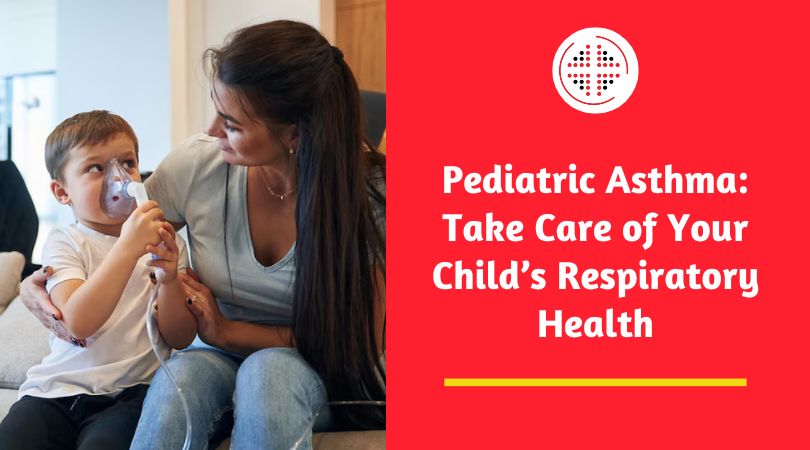


Asthma is a chronic condition in which the airways, the tubes that carry air in and out of your lungs, become inflamed and narrow, making breathing difficult. It affects both children and adults. Pediatric asthma is the most common chronic childhood illness, with nearly 7.5 million children in the U.S. suffering from it. However, with the right asthma action plan for your child, you can ensure that they live an active and healthy life.
This blog discusses significant details related to childhood asthma, including its impact on children, its causes, signs and symptoms, diagnosis and treatment, and when you must consult a doctor regarding the symptoms of childhood asthma.
Asthma usually affects children before age 5, when their immune system is still developing. Its symptoms may interfere with your child’s daily activities, including play, sports, school, and sleep. Childhood asthma is the leading cause of children being rushed to an emergency room, being hospitalized, and missing school. It is also one of the most common reasons for missed work for parents.
The most probable causes of childhood asthma are:
If either parent or someone in the family has asthma or allergies, the child likely may have asthma.
Several environmental factors, also known as asthma triggers, can set off an asthma attack. Also, based on different triggers, there are two major types of pediatric asthma:
Allergic Asthma: It is due to an allergic reaction caused by allergens such as:
Non-Allergic Asthma: It is caused by non-allergens, including:
Frequent respiratory infections, such as the common cold, can cause breathing problems.
Pediatric asthma symptoms can range from mild to severe. They include:
The symptoms worsen when the child has an asthma attack, which may develop gradually or suddenly. While a mild attack may last a few minutes, severe episodes may last from several hours to a few days. Severe asthma attacks that come without any warning can be life-threatening, so you must immediately get medical help for your child if you observe the following:
If not managed in time, childhood asthma may lead to certain complications, such as:
It can be challenging to diagnose childhood asthma among younger children for reasons such as:
However, for an accurate diagnosis, your child’s physician may:
For younger children unable to perform lung function tests, their doctor may suggest a trial of asthma medication in which they prescribe different medications to observe how the children respond to them.
Childhood asthma is chronic and needs proper management for your child to have a normal childhood. Hence, follow the “asthma action plan” given by your physician that provides information about:
Also, ensure your child has minimal exposure to potential triggers, as the doctor advises.
Depending on the frequency and severity of your child’s asthma symptoms, the treatment may include:
Quick-Relief Medicines:
These are inhalers for children who have milder symptoms or feel the symptoms only after physical activity. The medicines used are:
Long-Term Medications:
These medications help children who need daily medications to control their symptoms and prevent flare-ups and include:
If your child has frequent breathing issues, is vulnerable to the common cold, and seems tired and irritable, it may be due to childhood asthma. You must consult a doctor immediately for an accurate diagnosis and proper treatment.
Our team at MI Express Urgent Care understands the sense of urgency when it comes to getting the best medical care for your child. So, we provide pediatric urgent care services 7 days a week with extended hours at Canton and Ann Arbor, MI.
If you are looking for a medical center near you that provides prompt, comprehensive, compassionate, and quality asthma care for your child, contact us today.